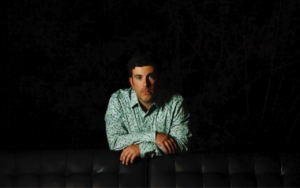 Taylor Swift, Thom Yorke, and Beyoncé are some of the most famous musical artists in the world. Whenever one of them has gone rogue with their album release or distribution strategy, it’s obviously become big headlines.
Taylor Swift, Thom Yorke, and Beyoncé are some of the most famous musical artists in the world. Whenever one of them has gone rogue with their album release or distribution strategy, it’s obviously become big headlines.
But here’s the thing: Taylor Swift, Thom Yorke, and Beyoncé are some of the most famous musical artists in the world!!!
What they choose to do with their music should (probably) have little impact on how YOU release and distribute YOUR music as an independent artist.
Why? Well, I’ll preface this all by saying that no two fanbases are alike, and if you try something outside-the-box that gets more people listening to your music — great! Who am I to judge?
However, if you’re reading this article, I’m betting that you don’t have single-album sales figures in the millions, you’re not selling out world tours, and you haven’t been on the Grammy Awards so many times you’ve lost count.
For you, sticking to the tested distribution and promotion methods isn’t about playing it safe; it’s about playing it smart!
Here are the three lessons you should NOT learn from the examples of famous artists:
1. If you launch your album exclusively through one platform, your fans will be happy to follow you there. [They might not be.]
2. Releasing a secret album is guaranteed to get people talking. [It isn’t.]
3. You should pull your music from Spotify if you want to make the most money. [You shouldn’t.]
What should you do instead?
1. No surprises, please!
“No Surprises” is actually the name of a classic song by Radiohead (the group Thom Yorke fronts). They didn’t follow that commandment when releasing their 2007 album In Rainbows, though. In typical Radiohead fashion, news about recording and release dates were kept cryptic at best. Then with a quick email announcement to the band’s fan list, Radiohead basically said, “hey, we’ve got a new album. It’s available on our site and you can pay whatever you want for it, including getting it for free.”
As far as I know, it was the first time a major label act had offered new music in such a way. And a gazillion people downloaded it (many of them paying for it). First their diehard mailing list subscribers, then casual fans who started hearing about the album from every media outlet that covered stories on music, business, the Internet, etc. When the album was released on vinyl and CD, many more people bought it (some who’d already downloaded it).
Beyoncé did something similar in 2013 when she “secretly” released her 5th album on iTunes without any prior announcements or promotion. The story about the release didn’t have the “pay-what-you-want” angle, but it did have the element of surprise and, well,… Beyoncé! The album debuted at #1 in the US (Beyoncé’s fifth consecutive #1 album), and was the fastest-selling album ever on iTunes.
Big albums. Big news stories. But ask yourself this: “If I dropped a brand new album on the world tomorrow, would enough people care to make the release newsworthy?”
As an indie artist, part of a successful album launch is about building your story and promoting your album long before its release, in order to create anticipation. For most DIY artists an overnight launch of a secret album would fall flat. So unless you have a really compelling reason to keep things hush-hush, give yourself (and your music) a long runway.
2. Remember that exclusives only work if they’re uncomplicated and can get you more exposure
The release of the secret Beyoncé album worked so well for two reasons: 1) iTunes is a trusted retailer with many millions of customers, and 2) Beyoncé is guaranteed to make the most of the partnership — meaning that iTunes would put all of their promotional muscle behind the album once it was launched.
If you decided to launch your new record exclusively through iTunes, you’d have the consumer trust-factor on your side, but would you get much extra love from iTunes? It’s certainly possible as an indie, so I don’t think you should rule it out entirely, but there’s no way that you’ll get the Beyoncé treatment. Since that’s the case it’s worth asking yourself: “Do the benefits of an exclusive release outweigh the fact that some of my fans won’t want to purchase or access my music in this way?”
Then there’s the recent Thom Yorke solo album that was released on BitTorrent. Talk about confusing (or scaring) the casual Internet users in your fanbase!
Apparently Yorke did just fine. Plenty of downloads and plenty of revenue. But again, he can get away with it because he’s the singer of Radiohead. If you released your album exclusively on BitTorrent, what would your Aunt Dorris do? What would over half your fanbase do? They’d probably wait until it came out on CD or went live on iTunes.
If you can get some extra promotional love out of a limited-time exclusive period for your release, go for it! But make sure “exclusive release” doesn’t mean you’re excluding too many of your fans.
3. You need to have music on Spotify
If the stated logic is to be believed, Taylor Swift drove a bunch of extra music sales by removing her music from Spotify around the launch of her album 1989. She also got every news outlet talking about her album. Well played, Taylor.
Thom Yorke also pulled the Atoms for Peace catalog from Spotify in 2013, comparing the company to “the last desperate fart of a dying corpse” because of its close (and on the books) relationship with major labels.
Unlike Taylor Swift and Thom Yorke though, there’s billions of people out there who haven’t heard of you or your music yet — and millions of them are Spotify users.
Say what you will about the streaming model or Spotify’s per-stream payouts. If you’re serious about finding new listeners for your music, getting them interested, and turning them into fans, you need to have a few songs on Spotify at the very least. Spotify is one of the important tools in the present music discovery kit.
Thom and Taylor don’t need to worry about their “discoverability.” You do.
—
What do you think? Are there lessons to learn from the way these megastars release music? Or do the lessons not apply to DIY musicians? Let me know in the comments below.
[hana-code-insert name=’pr-get-pub’ /]
[hana-code-insert name=’newsletter-get-music-promotion’ /]

